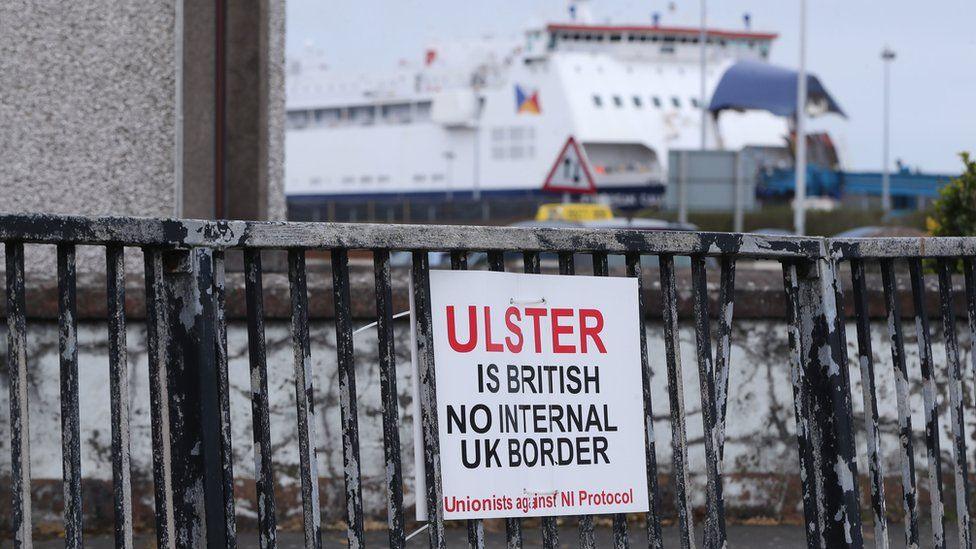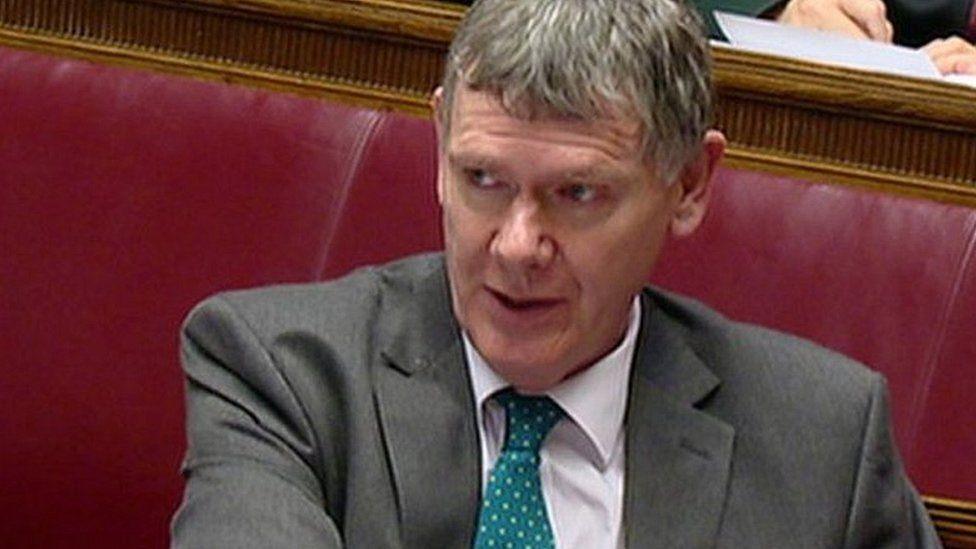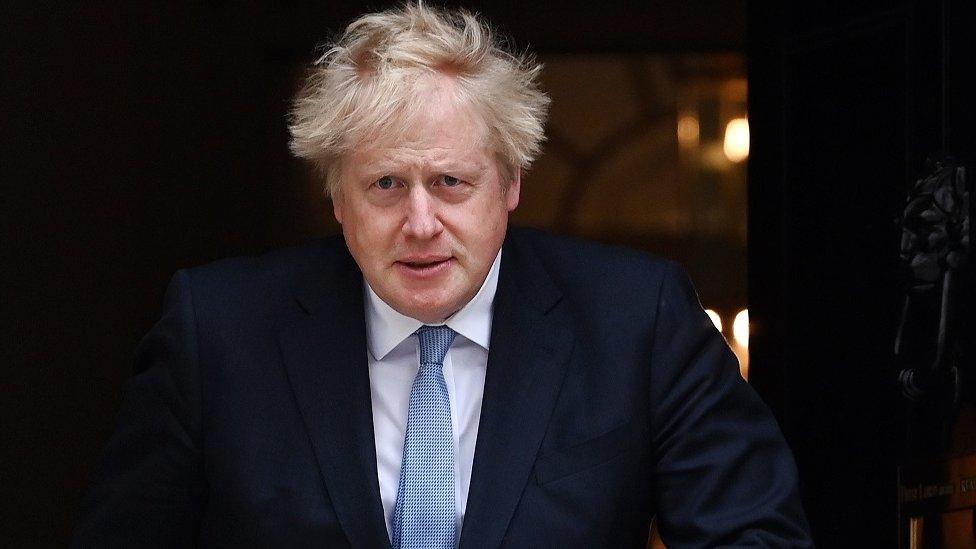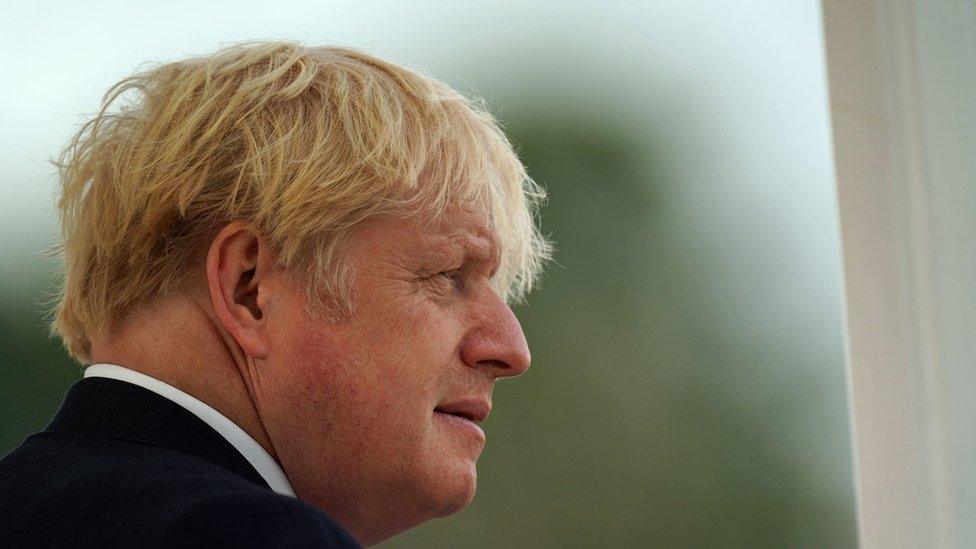Brexit: London 'did not prioritise NI solutions'
- Published

It is hard to dispute the idea that London did not prioritise finding a solution to the Brexit problems facing Northern Ireland, a former top Stormont civil servant has said.
The UK instead used those issues as "tactical considerations" in the "bigger game", said Dr Andrew McCormick.
He is the former Brexit lead at the Executive Office.
He again said the UK was aware of the protocol's implications.
It comes as tensions have risen over the protocol - the post-Brexit trading arrangements for Northern Ireland - with the Democratic Unionist Party (DUP) on Friday blocking the election of Speaker to the new assembly.
The protocol - now under fresh scrutiny following the 5 May assembly election - keeps Northern Ireland aligned with the EU single market for goods and was designed to ensure free trade could continue across the Irish land border, but it has been opposed by unionist politicians.
Last week's vote cemented a majority for assembly members who accept the protocol, including the new largest party, the republican party Sinn Féin.
The DUP, now the second-largest party by seats, said it would not nominate ministers to Stormont's governing executive until its concerns about the protocol are resolved.
Prime Minister Boris Johnson is due to visit Northern Ireland on Monday with increased speculation that the government is poised to introduce legislation to strip away parts of the Northern Ireland Protocol.

Dr Andrew McCormick had a long career in the Northern Ireland civil service
Mr McCormick, who witnessed the initial Brexit negotiations first hand, said the UK has accused the EU of using Northern Ireland as a pawn.
"But I think the key difference is that the EU spelled out the choices that London would have to make," he told academics at Queen's University in a wide-ranging interview as part of the Brexit Witness Ireland/Northern Ireland project., external
This project is collecting and archiving for future use the experiences of those involved in the Brexit process on the island of Ireland and was published this week, external.
His comments follow a previous article he wrote for the Constitution Society last month in which he said responsibility for the Northern Ireland part of the Brexit deal lies "fairly and squarely with the UK government".
'The issue would be unmanageable'
He also said the UK government understood the implications of the NI Protocol.
Mr McCormick, who retired last year as director general of International Relations for the Northern Ireland Executive Office, reiterated that view in the interview with the Queen's academics.
"We knew from the spring of 2020 that the protocol meant that the nature of the supply of agri-food goods from Great Britain to Northern Ireland would mean very large numbers of Export Health Certificates (EHCs) would be required - more than you could imagine.
"DEFRA and DAERA would have talked about it - they knew and understood the scale of the issue.
"The business leaders, especially the retail sector, were saying very clearly from the spring of 2020 onwards that the issue would be unmanageable. So, for the UKG [UK government] to say recently that they didn't expect the commission to enforce it this way is manifestly wrong.
"UKG officials knew precisely what was going to happen, and made detailed proposals that would have mitigated the problem."
Mr McCormick said it was hard to understand the UK government's actions as "they knew enough about the implications of the protocol to have acted in a way that would have minimised the difficulties and opposition, but did not do so".
He said he did not think that anyone can "take seriously the idea that they didn't really expect the protocol to be as problematic, that they were duped or that the EU were not clear in what the provisions of the protocol would imply".
"Any attempt to run that argument ignores the plain fact that there were intense and detailed discussions throughout 2020," he said.
And he added: "So at best, there is a serious problem of mixed messages.
"It is hardly surprising that the EU distrusts them when they changed their stance so radically."
Related topics
- Published13 May 2022

- Published2 March 2023
